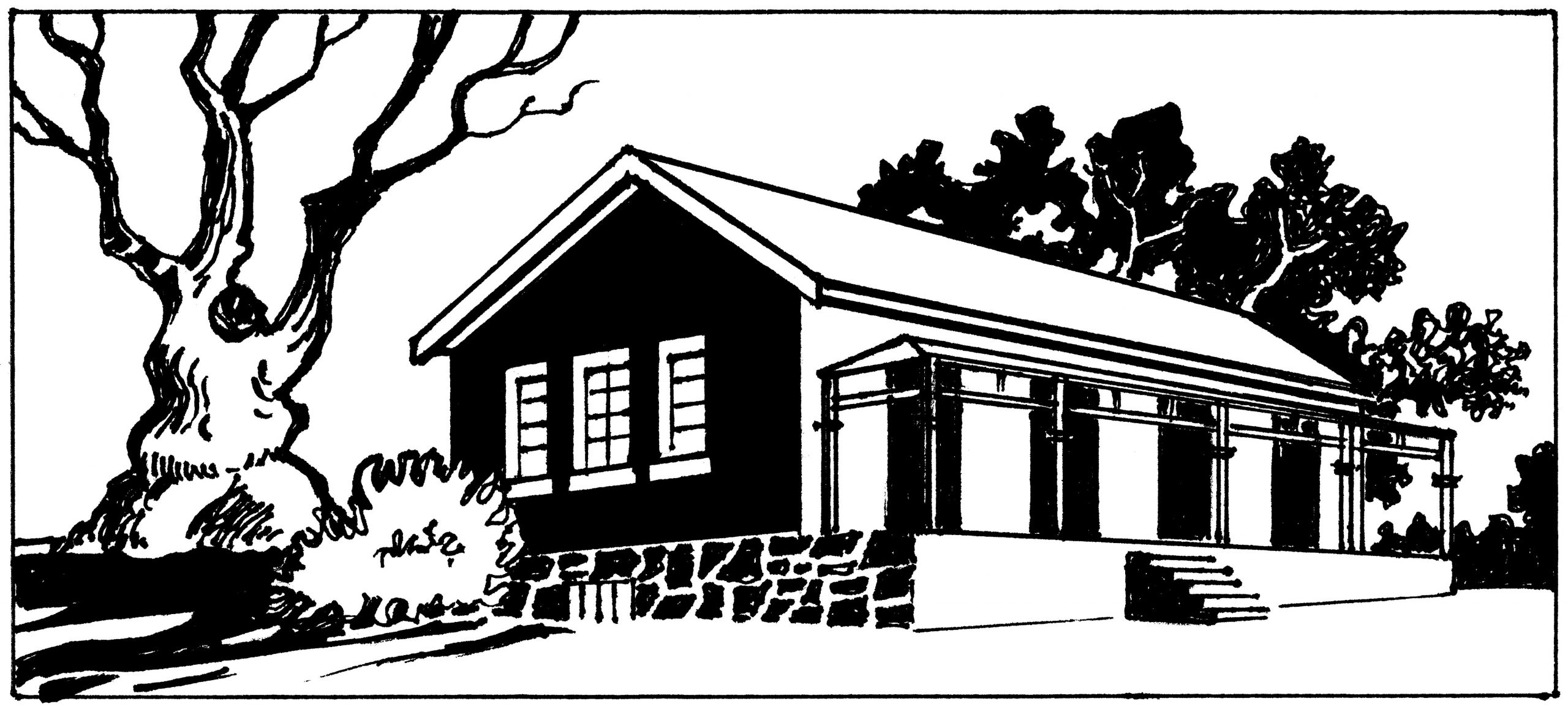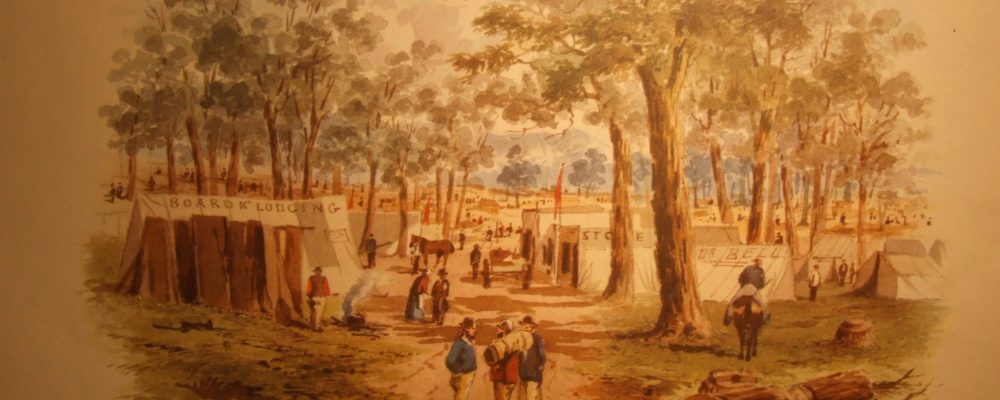The new government in Melbourne was concerned at the impact of gold mining on the colony and initially imposed a monthly licence fee of £1/10- on the miners. After all, the gold had been declared to be royal property. In December 1851 Governor La Trobe proposed to double the licence to £3, about 3 weeks wages for a (male) labourer. A ‘Monster Meeting’ was called and held at Golden Point, Chewton, with perhaps 15,000 miners attending. They flew the Forest Creek diggings flag and offered cheers for the speakers and groans for the governor. Governor La Trobe changed his mind and the licence fee remained at the old fee.
At this time, the Victorian government planned that Castlemaine would be the state’s second city, the administrative centre of the gold-fields. The original government centre, in the Goldsmith Cres area was moved “across the tracks” to a new Hoddle grid street layout. The Templeton St cemetery was relocated, amid lurid (but unsubstantiated) rumours of body parts falling from the cart in the race to remove the bodies for reinterment at Campbells Creek.
Controlled by the military, the management of the goldfields was always contentious. In Castlemaine the Goldfields Commissioner, John Bull, was a notably humane man, anti-transportation and opponent of the gold licence system. In late 1853 following a failed court-case brought by an informer against a boarding house keeper, there was a stand-off between the military on the Camp Reserve and the miners on Agitation Hill (now the site of the Anglican Church of Christ). John Bull was able to defuse the conflict gaining significant, but not universal, praise for his actions. The miners’ issues remained across the gold-fields quickly prompting the Red Ribbon Agitation in Bendigo, finally culminating a year later in the Eureka Stockade rebellion in Ballarat. History recognises John Bull’s ability to peacefully manage conflict as one of the reasons why there was no uprising equivalent to Eureka in Castlemaine. The licence fee was finally replaced with an annual fee of 5/- which also gave the bearer the right to vote.

